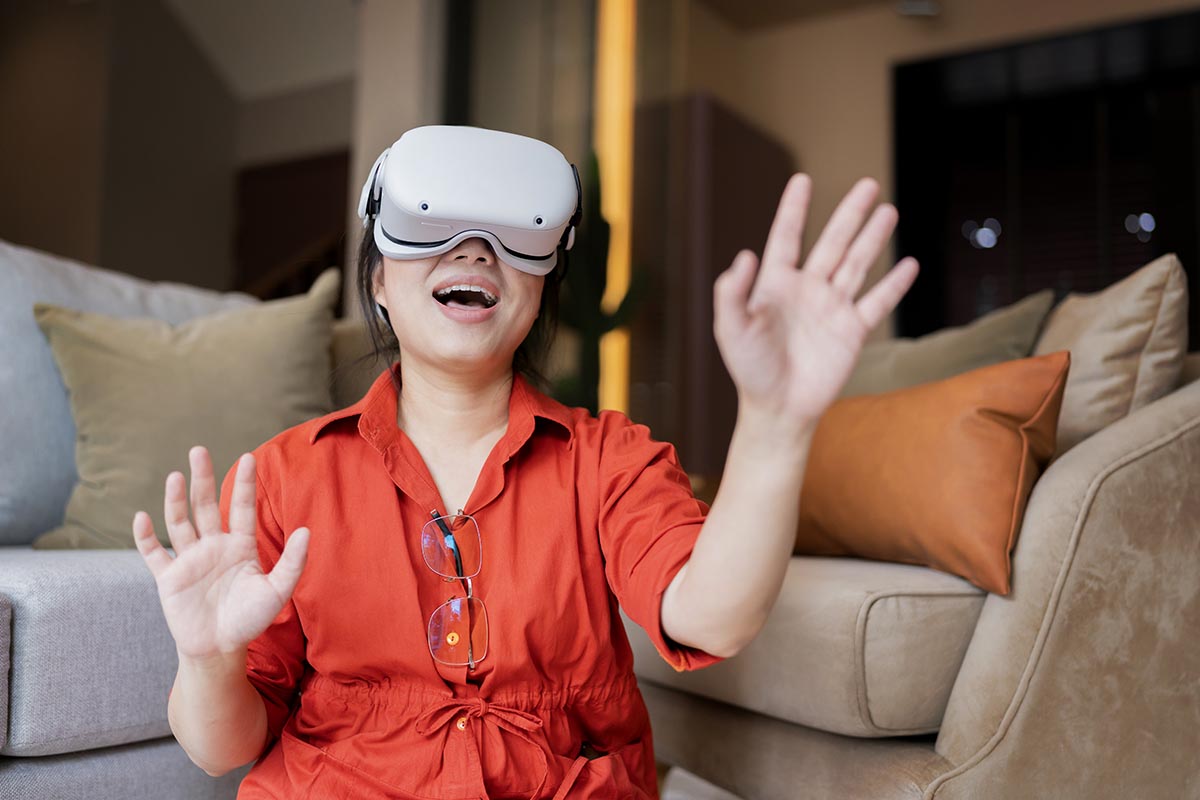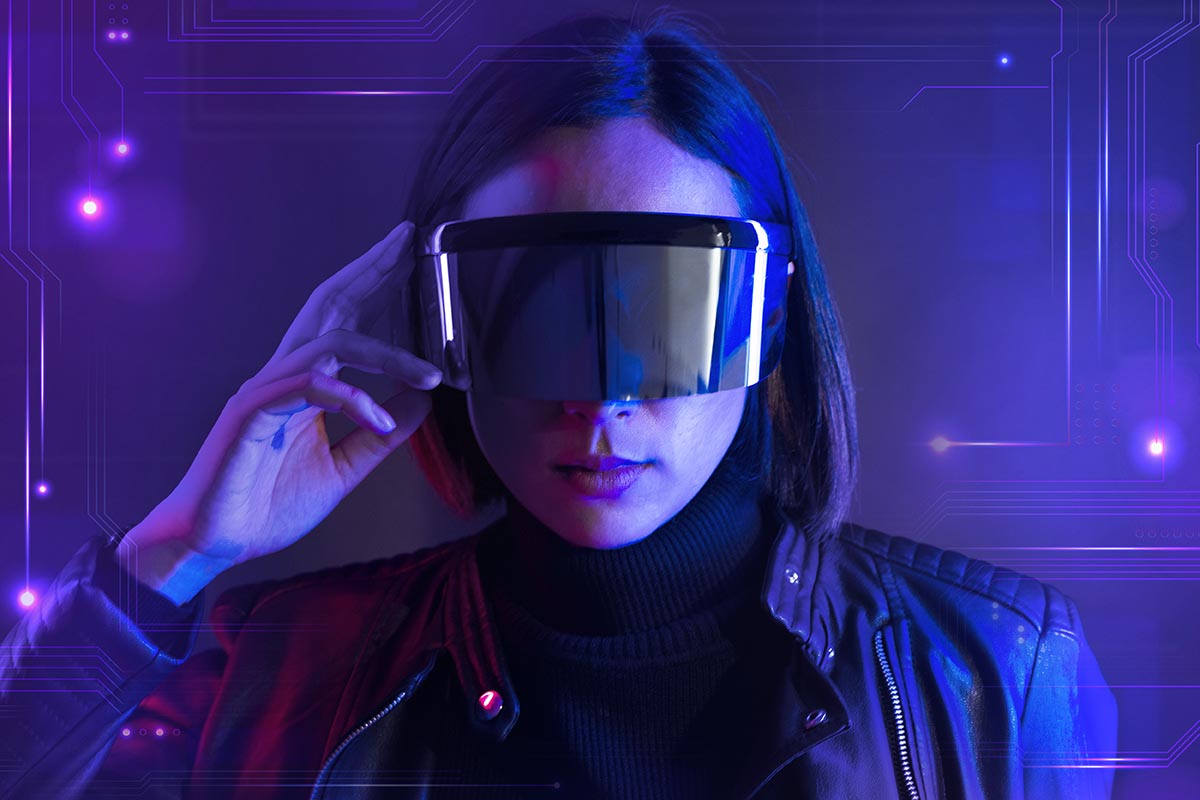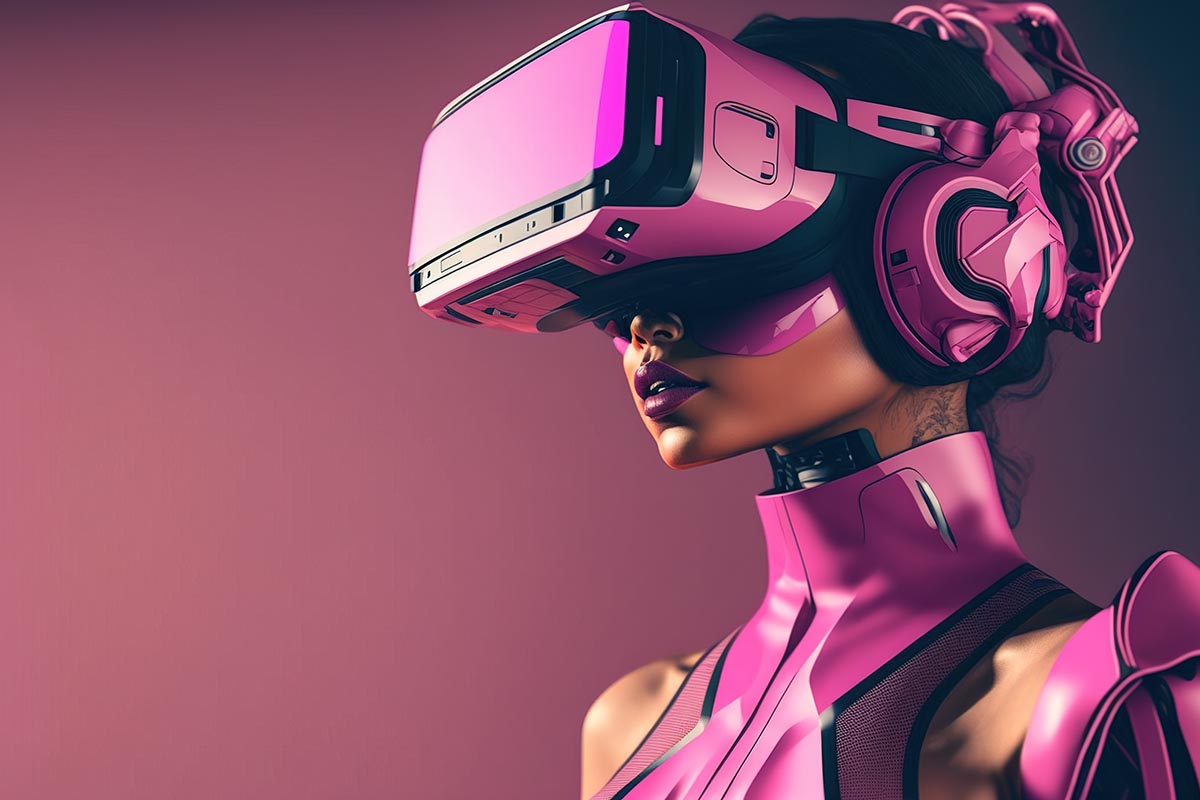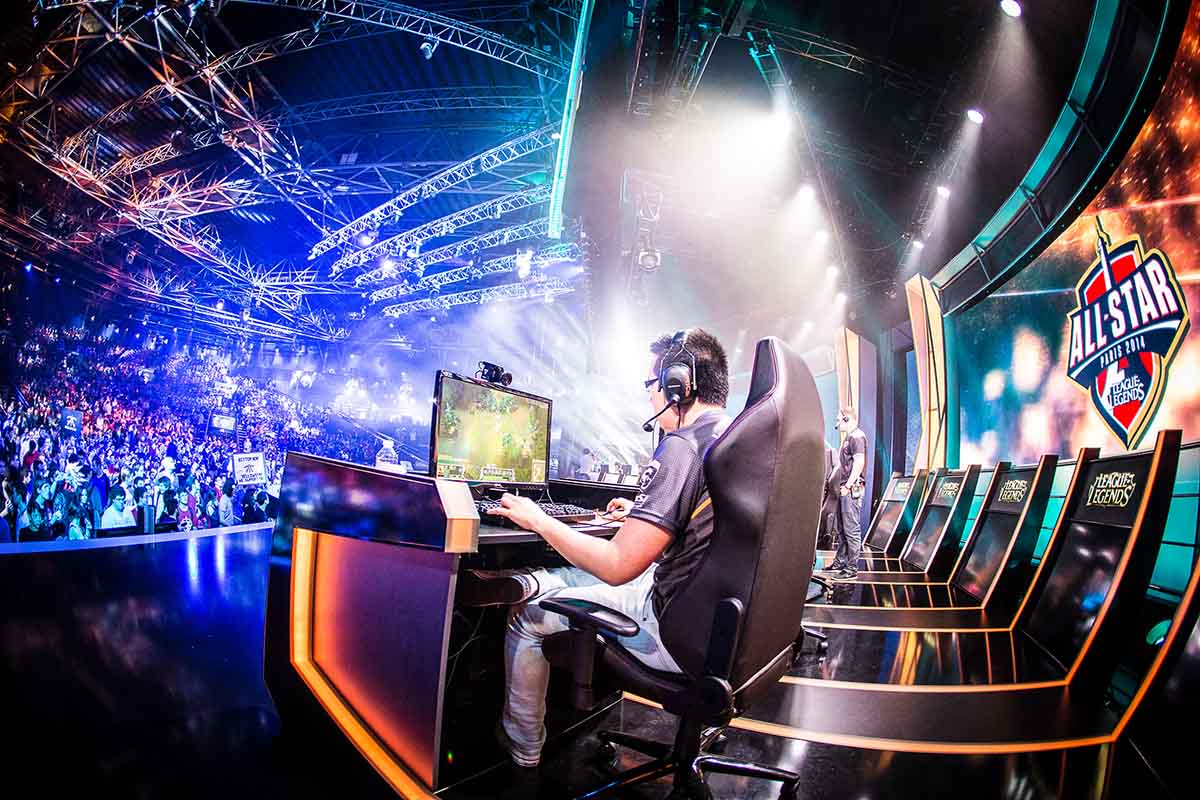Have you ever heard of the Metaverse? It’s a term that has been buzzing around in the tech world lately, but what is the Metaverse? At its essence, it’s a virtual universe where people can interact with each other in a shared digital space. Think of it as a fully immersive and interactive virtual world that blurs the line between reality and virtual reality.
But the question remains: does the Metaverse already exist? The answer may surprise you. While the concept of the Metaverse has been around since the 1990s, some argue that we are already living in a version of it. Online gaming environments, virtual reality platforms, and even social media networks can all be seen as early iterations of what could become the Metaverse.
Does Metaverse Already Exist: Exploring the Metaverse Definition
The term “metaverse” was first coined by Neal Stephenson in his 1992 science-fiction novel, Snow Crash, describing a virtual reality world in which users could interact with each other through customizable avatars. Since then, the concept has evolved and taken on a life of its own, with various interpretations and applications.
The metaverse is a collective virtual space in which users can interact with a computer-generated environment and with each other through digital representations of themselves. It’s essentially a shared virtual reality experience allowing social interaction and immersion in a digital world.
Unlike traditional video games or social media platforms, the metaverse is not limited to a single application or platform. Instead, it’s an open and interoperable network of virtual worlds, games, and experiences within the same shared space. This means users can seamlessly move between virtual environments without switching between platforms or accounts.
Components of the Metaverse
The metaverse is made up of several key components, all working together to create a seamless and immersive experience for users:
| Component | Description |
| Virtual Worlds | A computer-generated environment in which users can interact with each other and digital objects. |
| Avatar | A digital representation of a user, often customizable and used to navigate virtual spaces. |
| Virtual Goods | Digital assets that can be bought, sold, or traded within the metaverse. |
| Social Features | Tools and functions that enable social interaction, such as messaging, voice chat, and friend lists. |
| Technology | The underlying infrastructure and software that power the metaverse and allow for seamless integration of different virtual environments. |
These components form a complex and dynamic ecosystem that enables users to create, explore, and interact within a vast virtual world.
Evolution of the Metaverse Concept
The concept of the metaverse has been in development since the early days of the internet. Many attribute the coining of the term “metaverse” to science fiction author Neal Stephenson, who used it in his 1992 novel Snow Crash, where he envisioned a world where people could exist within a virtual reality.
Since then, the metaverse concept has evolved from a fictional idea to a potential reality. It has been adopted by many in the tech industry who believe in the potential of a fully immersive, interconnected virtual world.
The evolution of the metaverse concept can be seen in the various virtual worlds and online communities that have emerged over the years. Second Life, for example, was launched in 2003 and allowed users to create their avatars and interact with others in a virtual world. This was followed by the launch of virtual reality platforms such as Oculus VR in 2012 and the emergence of blockchain-based virtual worlds like Decentraland in 2017.
The metaverse concept continues to evolve, with technological advancements pushing boundaries and expanding possibilities. With the increasing use of virtual reality and the growing popularity of gaming, the metaverse is becoming more of a reality than ever before.
The Architecture of the Metaverse
The metaverse is a complex network of interconnected virtual worlds with unique architecture and infrastructure. To understand how the metaverse works, it’s important to dive into its technical components.
The Infrastructure
The metaverse comprises multiple virtual worlds, each with its own unique infrastructure. These virtual worlds are connected through servers, which allow users to navigate seamlessly through different environments and experiences.
At the heart of the metaverse is a distributed network of servers and computers, which work together to store and transmit data. This network constantly evolves, with new technology and advancements being developed to enhance its performance and scalability.
The Technology Stack
The technology behind the metaverse is built on various technologies, including blockchain, virtual reality, artificial intelligence, and cloud computing. These technologies power the metaverse and create a seamless user experience.
Blockchain creates a secure and decentralized virtual economy within the metaverse, while virtual reality technology provides users with an immersive and interactive experience. Artificial intelligence is used to create intelligent avatars and NPCs, while cloud computing allows for storing and processing massive amounts of data.
The User Interface
The user interface of the metaverse is designed to be intuitive and easy to use. Users interact with the virtual world through a variety of devices, including VR headsets, smartphones, and computers.
The user interface constantly evolves, with new technologies and innovations developed to enhance the user experience. For example, haptic feedback technology is being developed to provide users with a more immersive sensory experience.
The Future of the Metaverse Architecture
The architecture of the metaverse is constantly evolving, with new technology and advancements being developed to enhance its performance and scalability. As the metaverse continues to grow and evolve, we can expect to see new and innovative approaches to its infrastructure and technology stack.
One potential development area is the use of decentralized technologies, such as blockchain, to create a more secure and decentralized metaverse. Another development area is the integration of AI and machine learning technologies to create more intelligent and interactive virtual worlds.
Virtual Reality in the Metaverse
The use of virtual reality (VR) technology plays a major role in creating the immersive experience of the metaverse. VR allows users to engage with the virtual environment and interact with other users more naturally and intuitively, enhancing the sense of presence and emotional connection.
In the metaverse, VR technology enables users to explore new worlds, create and customize avatars, participate in events and activities, and engage in commerce and social interactions. The ability to virtually travel and experience different cultures or time periods is also made possible through VR in the metaverse.
Furthermore, VR technology in the metaverse offers new education, training, and therapy possibilities. For example, medical students can practice surgeries in a virtual environment, and people with social anxiety can participate in social situations through VR simulations.
In short, virtual reality is a crucial component of the metaverse, providing an immersive and interactive experience that enhances users’ sense of presence and engagement.
Gaming in the Metaverse
Gaming has always been an integral part of the metaverse experience. From immersive roleplay games to competitive eSports tournaments, the metaverse provides users with a diverse range of gaming opportunities.
One of the main advantages of gaming in the metaverse is the ability to break free from the limitations of the real world. In the metaverse, users can explore vast virtual worlds filled with endless possibilities, interact with other players from all over the globe, and compete in games that offer unique challenges and rewards.
Moreover, gaming in the metaverse allows players to create and personalize their avatars, adding a unique touch to their gaming experience. This enhances immersion and offers a sense of ownership and identity.
Impact of Gaming on User Engagement
Gaming has been instrumental in driving user engagement in the metaverse. With the increasing popularity of games like Fortnite and Minecraft, more and more users are flocking toward the metaverse to experience the thrill of gaming. The social aspect of gaming also plays a significant role in user engagement, as players get to interact and connect with each other on a deeper level.
Additionally, gaming in the metaverse allows for monetization opportunities, such as selling virtual goods and services. This has led to the emergence of a new industry, with developers creating games, platforms, and marketplaces to cater to the growing demand.
Future of Gaming in the Metaverse
The future of gaming in the metaverse looks promising, with advancements in technology and infrastructure allowing for more sophisticated games and experiences. With the introduction of virtual reality, gaming in the metaverse is set to become even more immersive and realistic.
Moreover, the integration of blockchain technology is expected to bring about a new era of gaming, where players have full ownership of their in-game assets and can trade them freely with other players. This decentralized approach to gaming has the potential to revolutionize the gaming industry, making it more accessible and profitable for players and developers alike.
Technology Behind the Metaverse
The metaverse is a complex system that requires advanced technology to function properly. It involves hardware and software components, with massive amounts of data processed in real time.
One of the key technologies behind the metaverse is cloud computing. This allows for storing and retrieving data from remote servers, making it possible for users to access the metaverse anywhere in the world. In addition, cloud computing also ensures that the metaverse can handle many users simultaneously without any significant lag.
Another crucial aspect of the metaverse is virtual reality technology. This involves creating realistic and immersive environments that users can interact with. Advanced graphics processing units (GPUs) are required to produce the sophisticated visuals that users experience within the metaverse. Similarly, high-quality audio technology is necessary for creating a fully immersive experience that enhances the user’s sense of presence.
Fully Immersive Technologies
In order to create the fully immersive experience required by the metaverse, advanced technologies such as haptic feedback and brain-computer interfaces are also being developed. These technologies will enable users to feel physical sensations within the metaverse, such as temperature, texture, and pressure. They will also allow users to control their virtual environments using their thoughts and emotions.
| Technology | Function |
| Virtual Reality (VR) | Creates immersive environments |
| Cloud Computing | Enables remote storage and retrieval of data |
| Haptic Feedback | Allows users to feel physical sensations within the metaverse |
| Brain-Computer Interfaces | Enables users to control their virtual environment using their thoughts and emotions |
Overall, the technology behind the metaverse is constantly evolving, and new innovations are always being developed. As technology progresses, it is likely that the metaverse will become even more sophisticated and immersive, providing users with an even greater sense of presence within virtual environments.
The Future of the Metaverse
The metaverse concept is still in its early stages, but it can potentially revolutionize how we live, work, and interact with each other. As technology advances, the metaverse will become more immersive and interactive, blurring the lines between virtual and physical space.
One potential development is the creation of a fully immersive metaverse, where users can experience a virtual world that is indistinguishable from reality. This would require significant advancements in virtual reality technology, but it could open up a whole new world of possibilities for education, entertainment, and socialization.
Virtual Economies
The metaverse may also create new virtual economies where users can buy and sell virtual goods and services using digital currencies. This could create new business opportunities for entrepreneurs and freelancers and provide users with a new source of income.
However, this would also raise concerns about regulation and security. As virtual economies grow, safeguards will be needed to prevent fraud and protect users’ assets.
Social Implications
The metaverse has the potential to bring people together from all over the world, breaking down geographical barriers and enabling new forms of social interaction. However, it could also exacerbate existing social issues, such as discrimination and inequality.
There will be a need for careful consideration of these social implications as the metaverse evolves and efforts to create a more inclusive and equitable virtual world.
Environmental Impact
The metaverse may have a significant environmental impact, as it requires vast energy to support the infrastructure and hardware needed to sustain a virtual world.
Efforts will need to be made to minimize this impact, such as using renewable energy sources and more energy-efficient hardware. Additionally, users and companies may need to consider their carbon footprint in the metaverse and take steps to reduce it.
The Metaverse and Social Interactions
The metaverse has been hailed as the future of social interactions, offering a unique way for people to come together and share experiences. With its immersive environments and advanced communication tools, the metaverse has the potential to revolutionize the way we interact with each other.
One of the key benefits of the metaverse is that it allows people from all over the world to connect and communicate in previously impossible ways. Whether it’s through virtual reality environments, online forums, or live events, the metaverse provides a platform for people to come together and share their interests, ideas, and experiences.
Another advantage of the metaverse is that it allows people to express themselves in ways that might not be possible in real life. In virtual environments, individuals can create avatars and personas that represent who they are or want to be. This can be especially liberating for people who have been marginalized or excluded from mainstream society.
However, there are also concerns about the potential for the metaverse to isolate individuals and communities further. Critics argue that too much reliance on digital communication can lead to a lack of real-world social skills and connections. Additionally, there are concerns about creating an “echo chamber” effect, where individuals are only exposed to viewpoints that confirm their beliefs.
Despite these concerns, the metaverse has the potential to create new forms of social interaction and community building that could profoundly impact our society. As technology continues to evolve, it will be interesting to see how these new opportunities are realized and how they shape our culture and relationships.
The Metaverse and Business Opportunities
The emergence of the metaverse brings numerous opportunities for businesses to expand their reach and enhance their operations. Here are some potential business opportunities that arise from the metaverse:
| Opportunity | Description |
| Virtual real estate | It is buying and selling virtual land and buildings within the metaverse. This can create a new market for real estate agents. |
| Virtual advertising | Advertising within the metaverse can provide businesses with a new platform to reach potential customers. |
| Virtual events | Hosting virtual events within the metaverse can provide attendees with a unique and immersive experience and a new revenue stream for event planners. |
| Virtual commerce | Creating virtual storefronts within the metaverse can provide new opportunities for e-commerce businesses to sell their products. |
These opportunities can potentially revolutionize how businesses operate, as the metaverse offers a new way of engaging with customers and creating innovative business models.
“The metaverse presents an exciting opportunity for businesses to explore new avenues for growth and engagement. It can create a new market for real estate agents, provide a unique platform for advertising, and unlock new revenue streams for event planners and e-commerce businesses.”
Potential Challenges and Concerns of the Metaverse
The metaverse presents numerous possibilities for individuals and businesses alike, but it also comes with its share of concerns and challenges. As technology continues to develop, addressing these potential issues is crucial to ensure that the metaverse is a safe and inclusive space for everyone.
Privacy Concerns
One of the primary concerns surrounding the metaverse is the issue of privacy. With so much personal information being shared within the platform, it’s essential to have robust security measures in place to protect individuals from potential data breaches and cyber-attacks.
Additionally, there’s the question of who can access this data and how it will be used. The metaverse platform providers must establish clear guidelines and policies regarding data collection, storage, and usage to ensure privacy and prevent any potential misuse of personal information.
Ethical Considerations
Another issue that arises with the metaverse is the potential for unethical behavior. For example, there’s a risk of individuals engaging in discriminatory practices or promoting hate speech within the platform. It’s important to have systems in place to monitor and prevent such behavior to ensure that the metaverse remains a safe and inclusive space for all users.
Regulatory Compliance
The metaverse is a complex platform that could potentially fall under various regulatory bodies’ jurisdictions, such as those that govern virtual currencies or online gambling. It’s essential to establish clear guidelines and regulations around the metaverse to ensure that it complies with all relevant laws and regulations and remains a lawful and ethical space for all users.
Technological Limitations
Finally, the metaverse’s technological limitations must also be considered. As the platform is still in its early stages of development, there will inevitably be issues with bugs, glitches, and other technical difficulties. Establishing proper troubleshooting and support systems to address these problems and ensure a seamless user experience quickly is crucial.
Overall, while the metaverse presents significant opportunities, addressing the potential challenges and concerns is essential to ensure that it remains a positive force for individuals and society.
The Cultural Impact of the Metaverse
The emergence of the metaverse has sparked debates about its cultural impact. Some believe that it has the potential to revolutionize the way we interact with each other and consume media, while others worry that it may lead to further isolation and detachment from reality. Let’s take a closer look at some of the potential cultural implications of the metaverse.
Enhanced Social Interactions
One of the most exciting aspects of the metaverse is its potential to facilitate social interactions on a larger scale than ever before. With the ability to connect people from all over the world in virtual spaces, it may become easier to form new relationships and connect with people who share similar interests. This increased connectivity may also lead to the creation of new virtual subcultures that transcend geographical boundaries.
Redefining Reality
The metaverse blurs the lines between physical and virtual reality, which may lead to a redefinition of what is considered “real.” As more people spend time in virtual environments, it may become increasingly difficult to distinguish between real-world experiences and virtual ones. This could have implications for our sense of self and our understanding of the world around us.
New Forms of Art and Media
The metaverse can potentially revolutionize how we consume and create art and media. With the ability to create immersive virtual environments, artists and creators may explore new forms of storytelling and entertainment. This could create entirely new art forms that do not exist in the physical world.
Challenges to Traditional Cultural Institutions
The rise of the metaverse could challenge traditional cultural institutions such as museums and theaters. With the ability to create immersive virtual spaces, people may increasingly turn to the virtual world for cultural experiences instead of physical spaces. This may require cultural institutions to adapt and find new ways to engage audiences in the metaverse.
Overall, the cultural impact of the metaverse remains uncertain, but it is clear that it has the potential to reshape our understanding of reality and the way we connect.
The Metaverse: Frequently Asked Questions
As the metaverse concept gains popularity, many people question what it is and how it works. Here are some frequently asked questions and their answers:
What is the metaverse?
The metaverse is a virtual space that allows users to interact with each other in a shared digital environment. It’s a concept that combines elements of virtual reality, gaming, social networking, and more.
Does the metaverse already exist?
The metaverse is still in its early stages of development, but some platforms and games are already being considered as potential metaverse candidates.
What are some examples of the metaverse?
Some examples include Second Life, Minecraft, and Fortnite. These platforms allow users to engage in various activities, interact with others, and create their own digital content.
What are the technological requirements to access the metaverse?
The technological requirements for the metaverse vary depending on the platform or game being used but generally involve a high-end computer, strong internet connection, and virtual reality headset.
What are some potential business opportunities in the metaverse?
The metaverse has the potential to create new business opportunities in areas such as virtual real estate, virtual goods and services, and virtual events and experiences.
What are some potential concerns about the metaverse?
Some potential concerns include privacy and security issues and ethical considerations related to individuals’ virtual representation and actions.
What impact could the metaverse have on society?
The metaverse has the potential to shape how we interact with each other, how we work, and how we entertain ourselves. It could also impact various industries and create new cultural norms.
Is the metaverse just for gaming?
No, the metaverse is not just for gaming. While gaming is a significant aspect of the metaverse, the concept encompasses a variety of other activities, including social networking, virtual events, and more.
Will the metaverse replace the physical world?
No, the metaverse is not intended to replace the physical world but to supplement it and offer new opportunities for interaction and engagement.
What is the future of the metaverse?
The future of the metaverse is uncertain, but it has the potential to become an even more immersive and expansive digital environment, offering endless possibilities for exploration, interaction, and creation.
Conclusion
The metaverse is still in its infancy but can potentially transform how we live, work, and play. As with any new technology, challenges and concerns will be addressed, but if these are tackled head-on, the metaverse could be a transformative force for good.



















